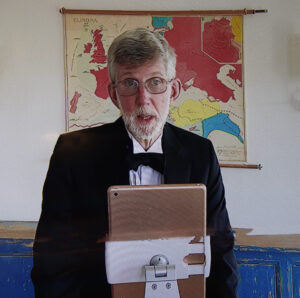Who Cares about Britney Spears?
[Marvin Olasky is the co-author (with Leah Savas) of The Story of Abortion in America: A Street Level History, 1652-2022. The following was first published on the Human Life Review’s website.]
Why should pro-life people care about singer/sex symbol Britney Spears? Sure, her memoir The Woman in Me sold 2.4 million copies last fall in its first week of release. Sure, Time named her one of the 100 most influential people in the world, and she placed first in a poll of Time readers. But shouldn’t we care about more important things, like elections and ballot measures?
No. We need to understand that the cultural battle is at least as important as the political battle, and chemical abortion—the hardest to stop, since it’s doable at home—is now more common in the U.S. than surgical abortion. That’s why what Spears wrote in her memoir about a tragedy two decades ago, when she was dating singer/heartthrob Justin Timberlake, may end up saving some lives.
Here’s the beginning of her story: “I became pregnant with Justin’s baby. It was a surprise, but for me it wasn’t a tragedy. I loved Justin so much. But Justin definitely wasn’t happy about the pregnancy I didn’t feel like I had much of a choice. I wouldn’t want to push him into something he didn’t want. Abortion was something I never could have imagined choosing for myself, but given the circumstances, that is what we did.”
Let’s stop for a moment and contemplate Lie #1. Abortion advocates say they are pro-choice, but abortion’s acceptance deprived Spears of her choice: “If it had been left up to me alone, I never would have done it.” Polls showing that more men than women support abortion are not surprising. Playboy Foundation grants to feminist groups were rational.
Spears herself is accurate in reporting Lie #2: “I was told, ‘It might hurt a little bit, but you’ll be fine.’” That was the advice two decades ago, yet Planned Parenthood still minimizes the physical effects on women (while ignoring, of course, the effects on a child). The Planned Parenthood website merely says, “You may feel tired or crampy for a day or so, and you’ll have bleeding and spotting for a while.”
Other information sources for many young women regarding chemical abortion are similar. Teen Vogue decided to “demystify what the process actually entails and what it can feel like” by quoting one woman who felt “some cramping” and others who “experienced discomfort or a general ‘icky’ feeling.” Teen Vogue did report that some “said their abortion caused a lot of pain,” but its writer did not offer specific detail, and said most women stayed home “watching TV and eating snacks.”
Cosmopolitan, explaining “What It’s Really Like to Take the Abortion Pill,” quoted three women. The first spoke of “a gradual increase in cramps and bleeding. . .
I never took anything for the pain or discomfort. No nausea at all.” The second used codeine and went to sleep for four hours, then woke up bleeding and “passed the fetus. . . . I felt relief and nothing else. After that, the pain subsided quite a lot and I was able to clean up and go back to sleep.” The third had moderate bleeding, then light bleeding: “It truly was no more painful than cramps on a medium day. I was floored. Easy and almost painless. I couldn’t have asked for more.”
But young women reading The Woman in Me may ask for more after they read the different, vivid story Spears tells: “I took the little pills. Soon I started having excruciating cramps. I went into the bathroom and stayed there for hours, lying on the floor, sobbing and screaming. I was so scared. I lay there wondering if I was going to die.” The pain, Spears says, was “unbelievable. I kept crying and sobbing until it was all over. It took hours, and I don’t remember how it ended, but I do, twenty years later, remember the pain of it, and the fear.”
Next came what is common after breaking a baby: breaking the relationship. Following the abortion Spears said she “was messed up for a while, especially because I still did love Justin so much. It was insane how much I loved him, and for me it was unfortunate. I should have seen the breakup coming, but I didn’t. When he left me, I was devastated. When I say devastated, I mean I could barely speak for months. Whenever anyone asked me about him, all I could do was cry I lay in my bed and stared at the ceiling.”
Spears, in reporting the tragedy of one death, may get some young women to think twice: Do I want to go through that, based on what my boyfriend wants? Will that salvage the relationship? Guy Blackman in The Age, an Australian newspaper, wrote that Spears’ biggest songs, “no matter how committee-created or impossibly polished, have always been convincing because of her delivery, her commitment and her presence. Spears expresses perfectly the conflicting urges of adolescence, the tension between chastity and sexual experience, between hedonism and responsibility, between confidence and vulnerability.” Abortion PR and abortion reality are also in conflict.










